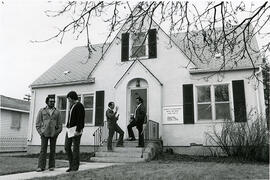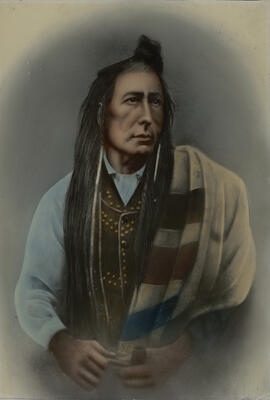- A-5037
- Item
- Apr. 1976
View of students standing outside of the Native Law Centre at 420 Cumberland Avenue South.
Bio/Historical Note: The Native Law Centre at the University of Saskatchewan was founded in 1975 by Dr. Roger C. Carter whose commitment to social justice issues convinced the University of the need for a Centre to facilitate access to legal education for Indigenous peoples. This was to promote the development of the law and the legal system in Canada in ways that better accommodate the advancement of Indigenous peoples and communities, and to disseminate information concerning Indigenous peoples and the law. Structured initially as an independent special project within the University of Saskatchewan, the Centre became a department of the College of Law in 1984. From the beginning, the Centre has nurtured innovation in its program areas of teaching, research, and publication. The Indigenous Law Centre continues to build upon that history and remains attentive to the contributions made as well as the challenges confronted by Indigenous peoples in Canada and internationally. Directors of the Centre have included: Roger C. Carter (1975-1981); D.J. Purich (1981-1994); J.Y. Henderson (1994- ) and Larry Chartrand (2017-). In May 2018, the Cree words “Wiyasiwewin Mikiwahp” were added to the Native Law Centre's name, so it will now be called Wiyasiwewin Mikiwahp Native Law Centre.


